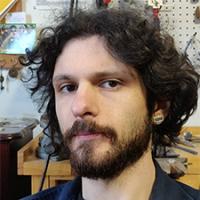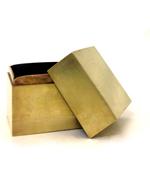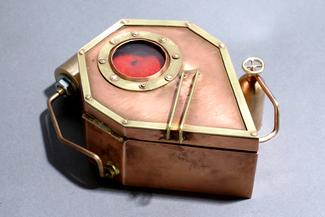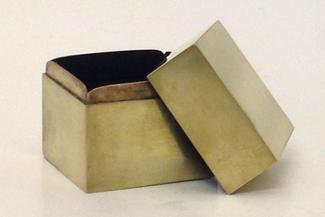Boxes and Geometric Forms
Creating solid volumetric forms can be quite problematic due to the amount of metal required and the weight of the finished object. However, fabricating that same shape as a hollow form solves both of these problems, and can be utilized in box-making. In this class, students will learn the ins and outs of fabricating geometric hollow forms and boxes that employ a friction fit lid, hinges, and simple catches. Students will learn how to properly score, bend, and solder sheet metal to create three-dimensional volumetric forms, ultimately leading to the creation of a geometric box or hollow-form of their own design.
Meet the instructor

William Vanaria is a Massachusetts based artist with a penchant for oddball materials. His work utilizes traditional metalsmithing techniques and a wide verity of non-traditional materials to produce jewelry which both questions and comments on notions of romanticism, value, fakery, and the hierarchy of materials present within modern day consumer culture. Through his work he pushes for a broader system of value which has been formulated though experience, consideration, and critical thinking.
William received a Bachelor of Fine Arts degree from the Massachusetts College of Art and Design with a concentration in "Jewelry & Metalsmithing" in 2012. Afterwards, he spent time working within the jewelry industry and volunteering as a teacher's assistant for various art institutions. He found that the latter was much more fulfilling, so he went on to further his education within the arts and to pursue a career in teaching. William received his Masters of Fine Arts degree from the University of Massachusetts: Dartmouth in 2016; once again with a concentration in "Jewelry & Metalsmithing."
Materials & Tools
There is a $70 materials fee for the class that is payable upon registration. The materials kit for this workshop includes various gauges and dimensions of brass sheet for hollow form and box creation, as well as tubing and wire for hinges, and specific tools needed to complete projects.
- Sketchbook and writing utensil
- Fine tipped permanent marker
- Mechanical pencil graphite refills (Used for soldering; the size and hardness do not matter.)



